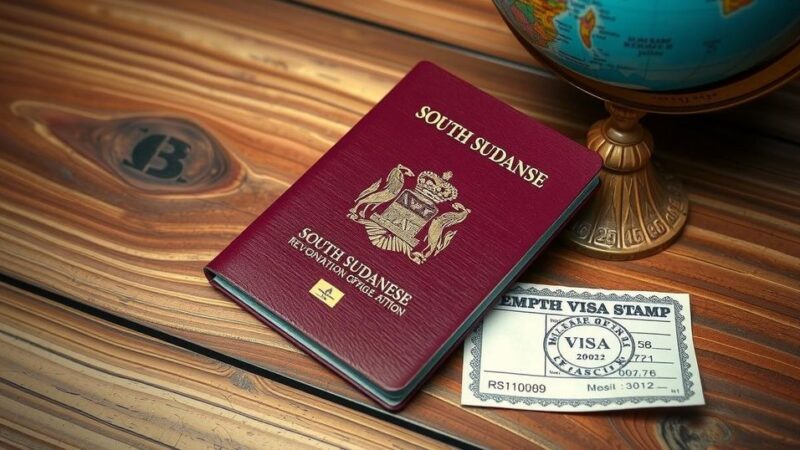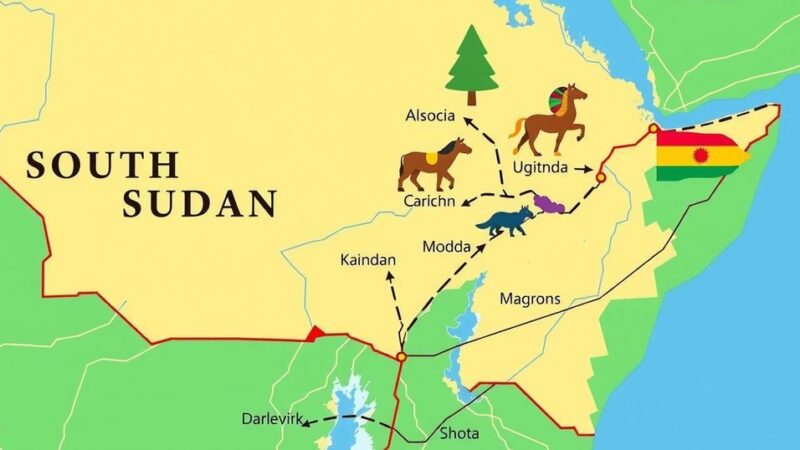Riek Machar’s arrest by armed forces in South Sudan has escalated tensions significantly, prompting UN warnings of potential widespread conflict similar to the prior civil war. The deteriorating power-sharing agreement with President Salva Kiir exacerbates fears of renewed violence as both leaders resist dialogue. Public sentiments are increasingly alarmed, urging peaceful resolution over conflict.
The arrest of South Sudan’s First Vice President, Riek Machar, marks a significant escalation in the ongoing political crisis within the nation. This event has prompted the United Nations to warn that the country is on the edge of widespread conflict. Armed forces stormed Machar’s residence in Juba, leading to fears of renewed violence reminiscent of the previous civil war that claimed approximately 400,000 lives.
Machar’s arrest follows the deterioration of a power-sharing agreement with President Salva Kiir, which has faced multiple challenges in recent months. According to statements from members of Machar’s party, the manner of his detention raised alarms, as his bodyguards were disarmed, and unclear charges were presented. Attempting to relocate Machar further escalates the tension within a fragile political environment.
Nicholas Haysom of the United Nations Mission in South Sudan emphasized that leadership actions are pushing the nation toward a possible return to conflict, potentially impacting the entire region. The breaching of peace deals has dire implications for South Sudan, which has continued to struggle with instability since gaining independence in 2011.
Experts suggest that President Kiir, at 73 years of age, is maneuvering politically to ensure his succession by marginalizing Machar through various means, including cabinet reshuffles and the detention of Machar’s allies. The situation remains volatile, with violent confrontations reported, particularly in Upper Nile State, and further clashes in proximity to Juba, with accusations of government forces attacking Machar’s training centers.
Public sentiment in Juba reflects deep concern about the escalating violence, with citizens calling for dialogue over conflict. Local resident Lilian Sukeji expressed fears of imminent warfare, underscoring a broader craving for peace amidst the rising tensions. Prior to Machar’s arrest, President Kiir had reiterated his commitment to restoring peace, yet recent encounters contradict this promise.
International observers are increasingly alarmed, with some nations reducing diplomatic presence as they warn of the potential for extensive violence that could spiral beyond control. Significant international pressure is mounting for Kiir and Machar to resolve their differences peacefully, highlighting the urgent need for dialogue amidst fears of a relapse into civil strife.
The arrest of First Vice President Riek Machar has heightened political tensions in South Sudan, placing the country at a critical juncture. The UN and various analysts warn that continued failure to engage in meaningful dialogue may result in widespread violence, endangering both national stability and regional security. A commitment to peace and effective resolution of conflicts between Machar and President Kiir is crucial to prevent a return to devastating civil war.
Original Source: www.news.com.au






